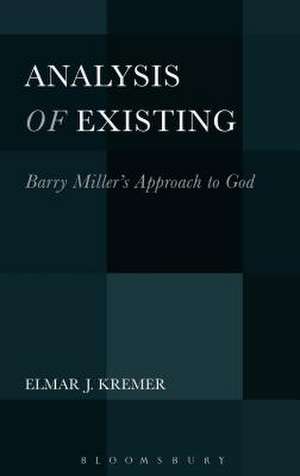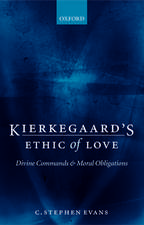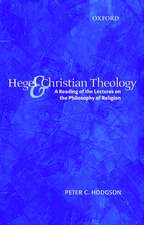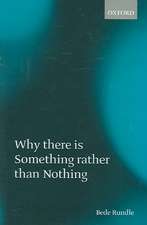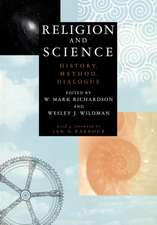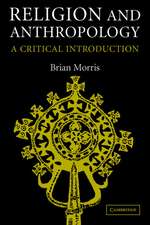Analysis of Existing: Barry Miller's Approach to God
Autor Elmar J. Kremeren Limba Engleză Paperback – 29 iul 2015
| Toate formatele și edițiile | Preț | Express |
|---|---|---|
| Paperback (1) | 254.02 lei 6-8 săpt. | |
| Bloomsbury Publishing – 29 iul 2015 | 254.02 lei 6-8 săpt. | |
| Hardback (1) | 770.13 lei 6-8 săpt. | |
| Bloomsbury Publishing – 12 mar 2014 | 770.13 lei 6-8 săpt. |
Preț: 254.02 lei
Preț vechi: 293.57 lei
-13% Nou
Puncte Express: 381
Preț estimativ în valută:
48.61€ • 50.89$ • 40.22£
48.61€ • 50.89$ • 40.22£
Carte tipărită la comandă
Livrare economică 05-19 aprilie
Preluare comenzi: 021 569.72.76
Specificații
ISBN-13: 9781501310881
ISBN-10: 1501310887
Pagini: 160
Dimensiuni: 140 x 216 x 9 mm
Greutate: 0.19 kg
Editura: Bloomsbury Publishing
Colecția Bloomsbury Academic
Locul publicării:New York, United States
ISBN-10: 1501310887
Pagini: 160
Dimensiuni: 140 x 216 x 9 mm
Greutate: 0.19 kg
Editura: Bloomsbury Publishing
Colecția Bloomsbury Academic
Locul publicării:New York, United States
Caracteristici
Provides new conceptual tools for anyone interested in fundamental questions in philosophy of religion
Notă biografică
Elmar J. Kremer is Professor Emeritus of Philosophy, University of Toronto, Canada. His past publications include Oeuvres Philosophiques d'Arnauld (Edited and Introduced by Elmar J. Kremer and Denis Moreau, 5 vols., 2003), The Problem of Evil in Early Modern Philosophy (co-edited with Michael J. Latzer, 1999), and Interpreting Arnauld (1996).
Cuprins
Foreword iiiAbbreviations vIntroduction 1Chapter One: Barry Miller's Philosophical Journey 6 I. Miller's life 6 II. Miller's philosophical theology 13 III. Looking ahead 21Chapter Two: Beginning with Existence 22 I. Is existence a property of concrete individuals? 27 II. Is existence a real property of concrete individuals? 39III. Miller's constituent ontology 45 IV. A new objection: How can a concrete individual be the subject of its existence? 50 V. Miller's argument for property instances 57Chapter Three: From Existence to God 73 I. Fido exists qua dependent on something other than his existing and its constituents. 73II. Ultimately, Fido exists qua dependent on an uncaused cause which is Subsistent Existence. 93Chapter Four: Divine Simplicity 117 I. Views of God's nature and their controlling notions 117 II. Reformulating and clarifying the notion of Subsistent Existence 120III: Is God identical with his non-existential properties? 133 IV. Which properties have limit case instances that are zero-bounding? 137 V. Omnipotence, Omniscience, and Divine Intellection 138Chapter Five: Simplicity, Creation, and Human Freedom 150 I. The contingency of God's knowing 150 II. The contingency and freedom of creation 156III. The causality of creatures and human freedom 169Chapter Six: Objections and Replies 179I. Graham Oppy's Objection to the argument from existence to God 179II. Katherin A. Rogers' worry that Miller is "in danger of denying any positive meaning at all to our theological language" 182III. Bruce Langtry's Criticism of Miller on the relation of God to creatures 186IV. A Theological Postlude: Is Subsistent Existence the God of the Christian religion? 188 Bibliography 196
Recenzii
Barry Miller's philosophical theology clearly shows how a philosopher can think rigorously about God without caving into fashionable and facile refutations of theism. In this study of his writings, Elmar Kremer provides an exemplary account of his sophisticated arguments while discussing their value and cogently defending them against a number of objections. Kremer's welcome book is both a fine introduction to Miller and a significant contribution to philosophy of religion.
Barry Miller was a brilliant philosophical theologian with an original argument for, and development of, the Thomist idea of God as the entity whose essence is existence. Unfortunately Miller's ideas have not been given the attention they deserve. In part this is because he made few concessions to the reader. In this book Elmar J. Kremer provides the 'clear, well-developed exposition' that Miller's ideas deserve. I recommended it highly to all interested in metaphysics, philosophy of religion, or theology.
Barry Miller's penetrating work in philosophical theology has not received the attention it deserves. It is therefore with pleasure that I recommend the first book-length treatment of Miller's work, Elmar J. Kremer's Analysis of Existing: Barry Miller's Approach to God.
Kremer's book consists of philosophically acute, painstaking scholarship. It is a very fine introduction to Miller's highly original work on the metaphysics of theism.
Barry Miller was a brilliant philosophical theologian with an original argument for, and development of, the Thomist idea of God as the entity whose essence is existence. Unfortunately Miller's ideas have not been given the attention they deserve. In part this is because he made few concessions to the reader. In this book Elmar J. Kremer provides the 'clear, well-developed exposition' that Miller's ideas deserve. I recommended it highly to all interested in metaphysics, philosophy of religion, or theology.
Barry Miller's penetrating work in philosophical theology has not received the attention it deserves. It is therefore with pleasure that I recommend the first book-length treatment of Miller's work, Elmar J. Kremer's Analysis of Existing: Barry Miller's Approach to God.
Kremer's book consists of philosophically acute, painstaking scholarship. It is a very fine introduction to Miller's highly original work on the metaphysics of theism.
